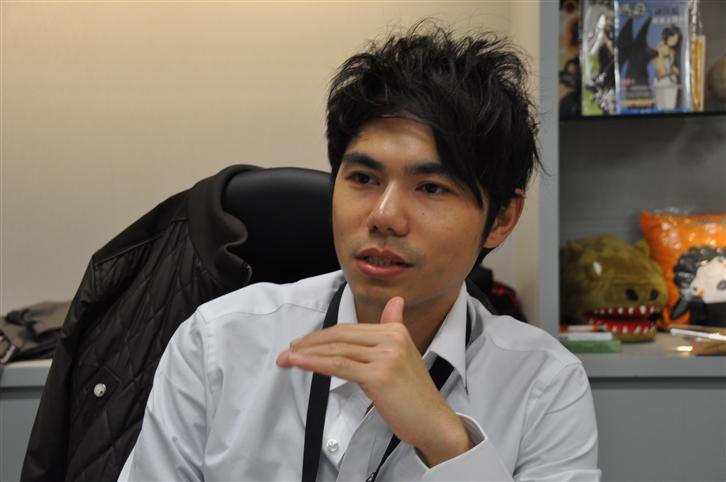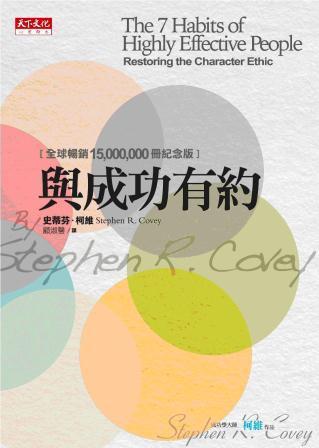
▲GTW-GOBU2-Ken Tang
Little Tip: Learn to categorize; be on the same side as your boss; know what your boss wants.
Recommended Books: What Got You Here Won’t Get You There, The 7Habits og Highly Effective People
Different Tasks Have Different Levels of Priority
Do you often feel that you don’t have enough time? Or, that you have a lot of work that you cannot finish in time? Ken, the Director of Gamania’s Second Operations Division, provides us with some of his secrets for easily completing his tasks at work and leaving enough free time to engage in recreational activities after work.
Ken’s responsibilities at work are very complex and include achieving Gamania’s revenue targets, boosting the company’s competitiveness, and maintaining a firm grasp on the likes and dislikes of game players. However, even with his busy and stressful schedule, he is still able free up three days of his time to ride his bike through the New Central Cross-Island Highway, releasing all of his stress from work in a timely manner. His secret is effectively categorizing his work into tasks that are “important,” “urgent,” and “secondary.”
Complete Your Important Tasks First, Reduce Emergency Situations
It takes a while to learn how to categorize, but training yourself to get into the habit of categorizing tasks is the only way to boost your work efficiency. Ken says that if you always complete your important tasks, you won’t ever be left with urgent tasks or urgent situations. If your important tasks are all progressing according to schedule, that means your work efficiency is good and that your contributions will be recognized.
Urgent situations usually arise when important tasks have not been completed or cannot be completed. If many important tasks turn into urgent situations, in time, under the effect of accumulation, every task will seemingly become urgent and difficult. However, if every task seems to be an urgent and important task, how do you create work efficiency?
How do you judge a task’s level of importance? Ken has a method: Tasks that your boss gives you are usually important tasks. Completing the tasks given to you by your boss in time not only lets you feel relieved and relaxed, it will also avoid urgent situations from arising and help you maintain a first-class work efficiency.
Gamanians also have to watch out for “cutting in line” situations with the tasks that your bosses give you. If such “line cutting” situations arise, be sure to remind your boss of the current tasks that are on your plate to avoid you never being able to complete your most important tasks and further resulting in poor efficiency. In other words, if your boss’s importance priorities change, be sure to discuss it with your boss. This way you will avoid never being able to complete the most important tasks and not knowing what your boss wants you to complete first.
Don’t be Afraid to Communicate with Your Boss
Your boss is like the general at the front line of a war, he knows what your current priorities are. Communicating with your boss is necessary and is helpful toward increasing your work efficiency. Meeting you boss’s requirements is equivalent to having good work efficiency. Furthermore, frequent communication with your boss is also necessary. Ken believes that to be able to effectively complete all of your most important tasks, you need to communicate with your boss at least once a week.
Confirm Incomplete Important Tasks before You Leave at Night; Categorize Your E-Mail When You First Get to Work in the Morning
To be able to update the priorities of his tasksin a timely manner, Ken goes over the important tasks of the week, and sees if any new tasks have been added every day before he leaves work. If new tasks have come in, he checks to see if he has already given them a category. His goal for doing this is to calculate how much time he has to complete all of these tasks. By going over his important tasks every day, he is also performing filtering and categorization, allowing him to reassign task priorities.
The benefit of checking e-mail first thing in the morning is that it gives him a chance to perform categorization and updating of priorities. It is possible that a new task may come in that needs to be pushed to the top priority and a previous high priority task may need to be moved to a lower priority. Checking your e-mail and categorizing your tasks will allow you to distribute your time even more effectively.
Once You Turn Off Your Computer, Your Workday is Over
Your work tasks need to be categorized, and so does your time. Use the portion of the day when you feel you work most effectively to complete your most important tasks, then complete your secondary tasks with other spare time segment throughout your day. After you categorize your time and work tasks, you will be able to achieve the “never put off until tomorrow what you can do today” type of efficiency. Once you turn off your computer, your workday is over. This way you can avoid your stress from work overflowing into your family life, as well as avoid the feeling of never being able to complete your professional work.
Good and efficient working habits will not result in the accumulation of fatigue, and will also not produce stress or a sense of burning out. After you finish your work, the rest of your time is your own. Gamanians also need to engage in healthy recreational activities.
Knowing when to Say No to “Unimportant Tasks” is Even More Important than Categorizing
All Gamanians have busy work lives. When you have many “important” tasks that are yet to be completed, you need to learn how to say no to taking in additional tasks. Ken believes this is a very important issue. Accepting too many tasks does not represent good work efficiency, only when you complete your tasks are you exhibiting good work efficiency. Whenever new “relatively unimportant” tasks appear on your radar, you need to think about whether you have the ability to complete those tasks; if you cannot complete those tasks within the required amount of time, then refusing to take that task may be the better option. “First in, first out” is also a way to display your high work efficiency. Blindly accepting new tasks might result in you always being in a state of urgency, which will not benefit your work efficiency, and, will likely result in less than ideal performance. If, after a year of hard work, your performance is evaluated as less than ideal, that probably isn’t what any Gamanian would hope for.
Have an “UP” Mentality to Succeed
Time management can increase your work efficiency. When your work efficiency is down, you can reference books such as “What Got You Here Won’t Get You There” and “The 7 Habits of Highly Effective People”. Managing your time is equivalent to managing your work; when your time is used efficiently and effectively, you will have more time to engage in your personal activities. Ken believes that time should be used to complete your work in a highly efficient and effective manner, and should not to be used to continually keep you in a never-ending state of working and struggling. Work and life can and should be well balanced.

▲(Image retrieved from:http://www.bookzone.com.tw)
“The 7 Habits of Highly Effective People” is the book about time management that Ken recommends to all Gamanians.
